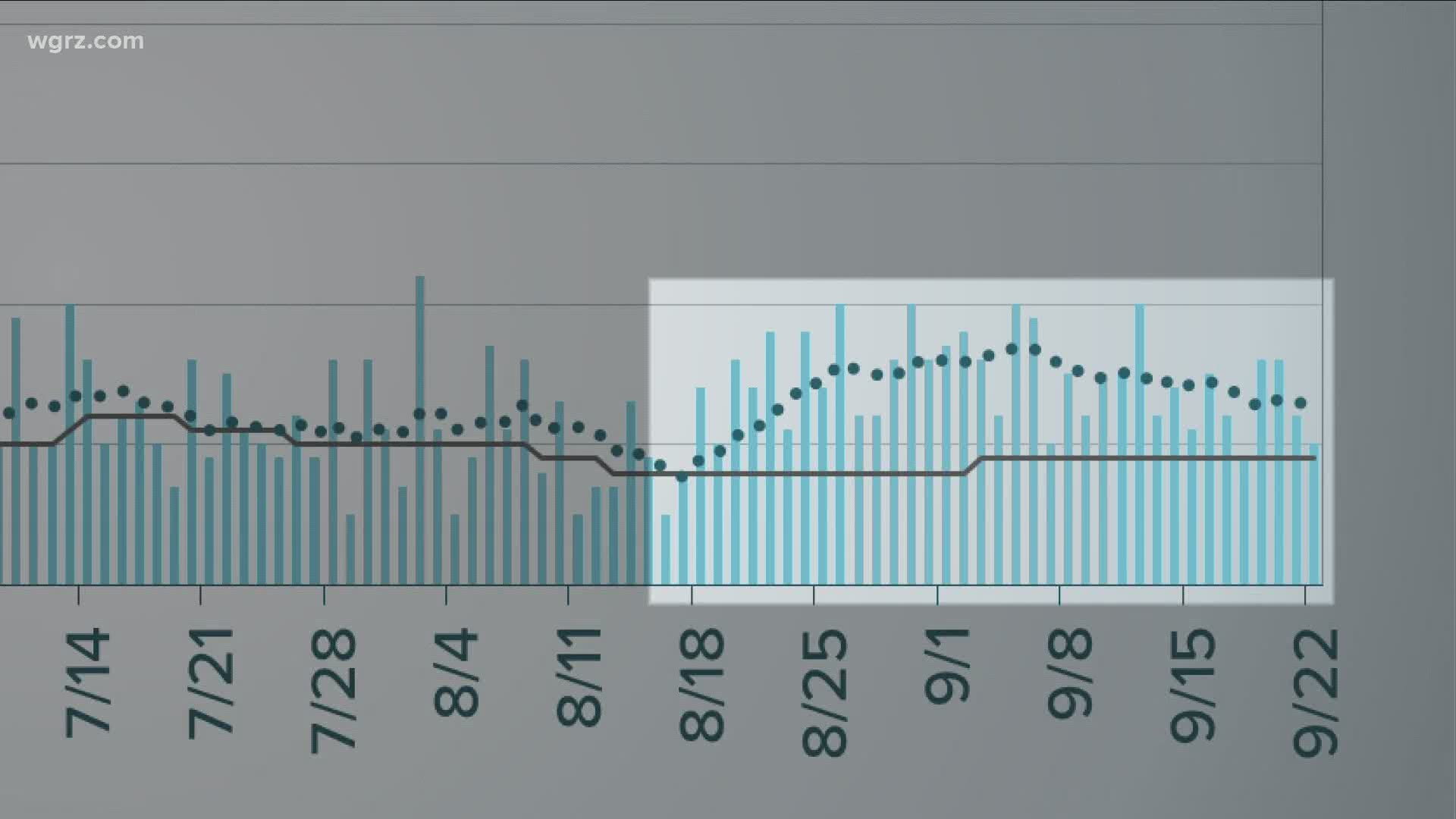ALBANY, N.Y. — New York Governor Andrew Cuomo announced updated numbers on COVID-19 cases across the state.
There were 70,930 test results reported on Monday, September 22. Of those tests, 665 were positive (.94%) .
"New York's most powerful tools in the fight against COVID-19 are the actions each of us take to slow the spread. When you wear a mask, socially distance and wash your hands, you're protecting other New Yorkers, not just yourself," Governor Cuomo said. "Local governments have critical roles to play enforcing state guidance and I urge them to keep doing so. We'll closely monitor the data here as the pandemic continues to spread across the country, and we'll get through this together by staying New York Tough."
There are currently 490 patients hospitalized across New York State. Five more people died of COVID-19 related illness, bringing the total number of COVID-19 deaths to 25,437 statewide.
Human coronaviruses are usually spread through..
.
• The air by coughing or sneezing
• Close personal contact, such as touching or shaking hands
• Touching an object or surface with the virus on it, then touching your mouth, nose or eyes before washing your hands.
Help stop the spread of coronavirus
• Stay home when you are sick.
• Eat and sleep separately from your family members
• Use different utensils and dishes
• Cover your cough or sneeze with your arm, hot your hand.
• If you use a tissue, throw it in the trash.
Lower your risk
• Wash your hands often with soap and water for at least 20 seconds. If soap and water are not available, use an alcohol-based hand sanitizer.
• Avoid touching your eyes, nose, and mouth with unwashed hands.
• Avoid close contact with people who are sick.
• Clean and disinfect frequently touched objects and surfaces.
• If you are 60 or over and have an underlying health condition such as cardiovascular disease, diabetes or respiratory illnesses like asthma or COPD, the World Health Organization advises you to try to avoid crowds or places where you might interact with people who are sick.

